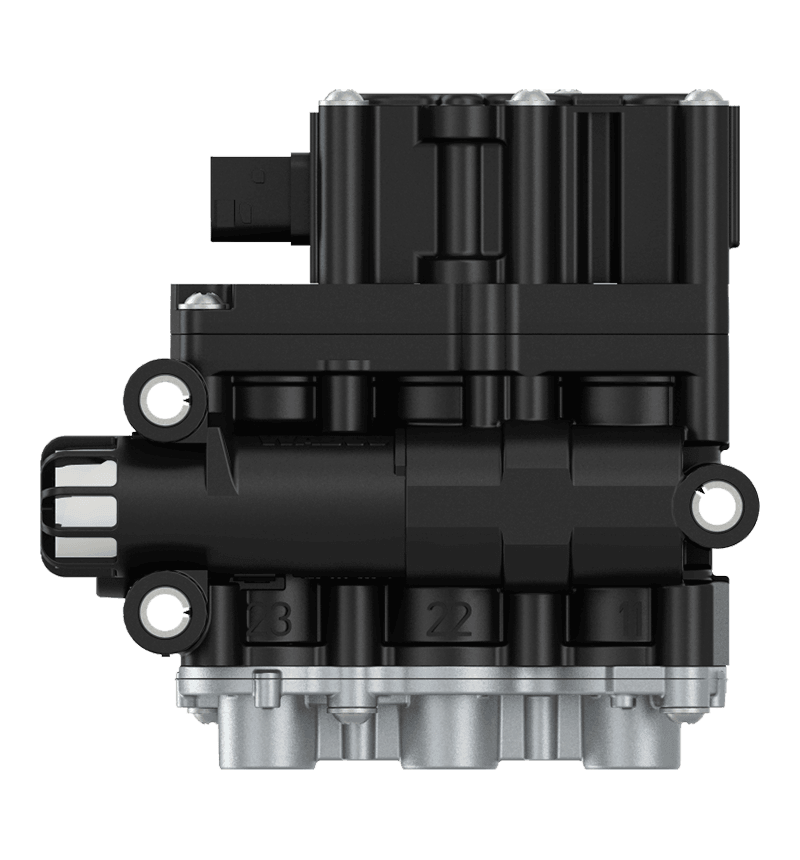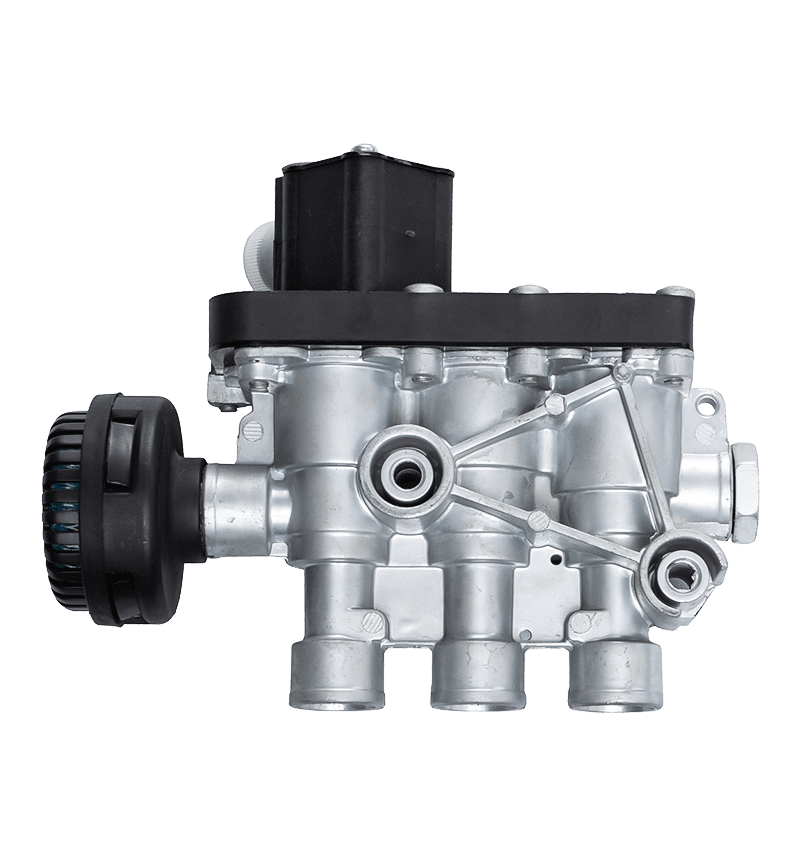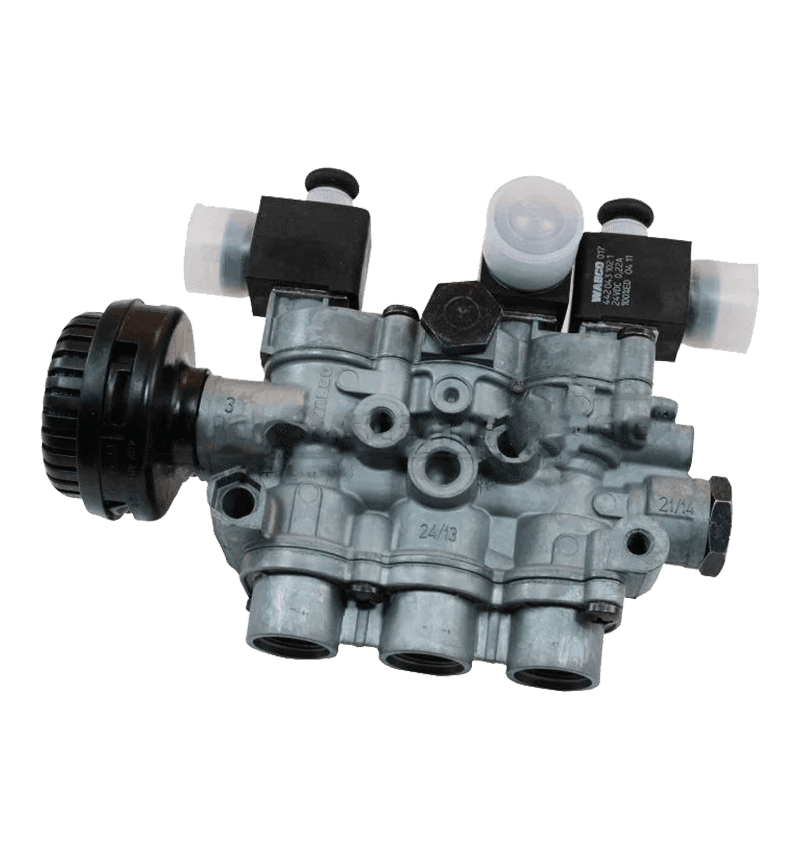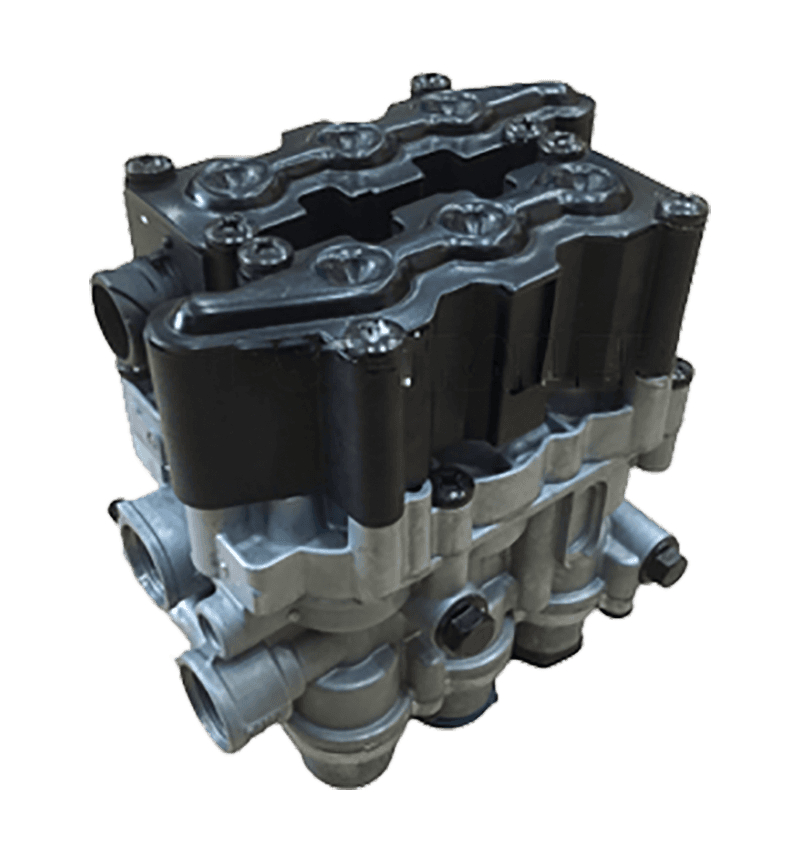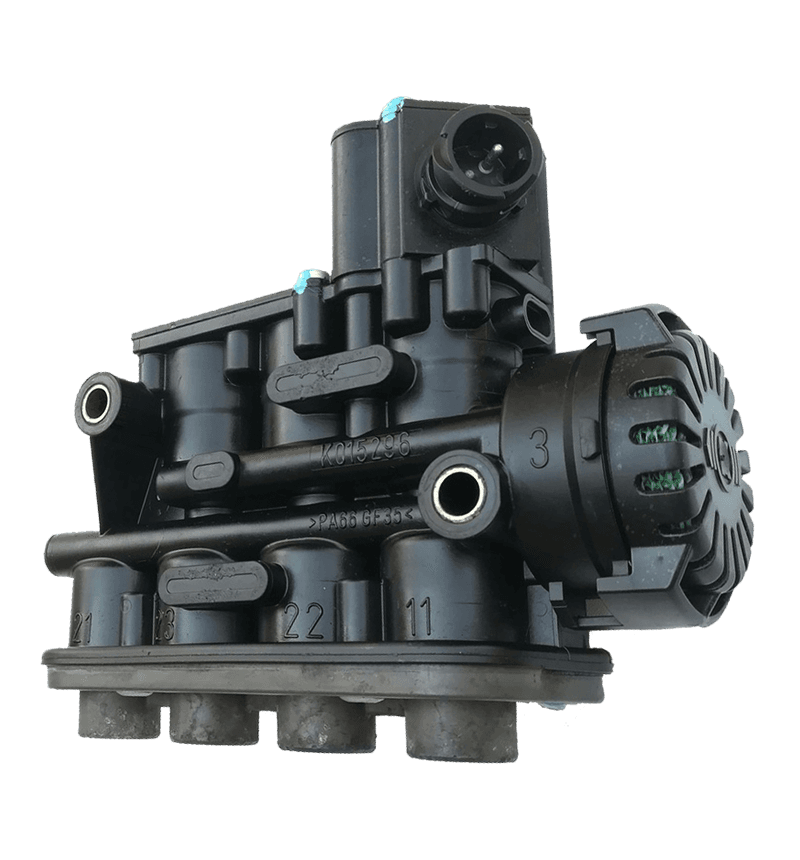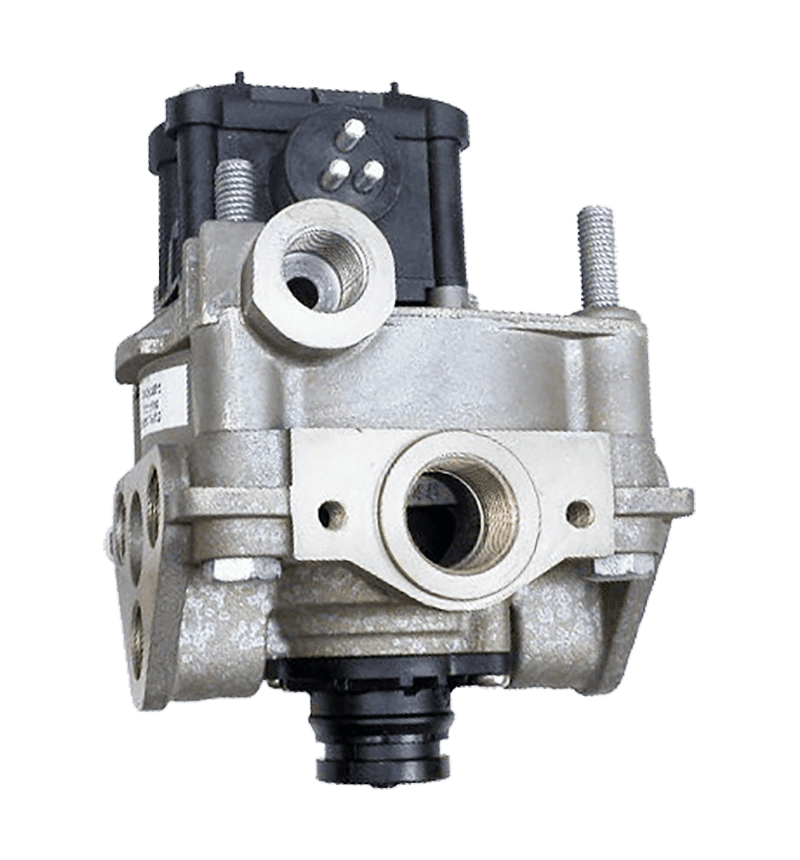Abnormal suspension height change
When the ECAS solenoid valve is blocked or leaking, the height adjustment function of the vehicle's air suspension system is often affected. If the solenoid valve is blocked, the airflow is blocked, and the air cannot smoothly enter or exit the airbag, which may cause the vehicle body to be unable to rise or lower to the target height. On the contrary, if the solenoid valve leaks, the air in the airbag may slowly leak out during parking or driving, causing one side of the vehicle or the entire vehicle to sink, resulting in uneven or falling suspension height. This change may not be noticeable in a short period of time, but over time, the body posture deviation will become more and more obvious.
Slow suspension response
Under normal circumstances, the ECAS solenoid valve can quickly adjust the gas flow and achieve timely changes in the vehicle body height after receiving instructions from the electronic control unit (ECU). However, when the solenoid valve is blocked, the gas flow is restricted, the vehicle body height adjustment process becomes slow, and the system's response time to the height adjustment command is prolonged. When operating the suspension lifting function, the driver may find that the speed of raising or lowering the vehicle body is significantly slower than before. In addition, if there is a leak, the vehicle body height may not remain stable after adjustment, and frequent repeated adjustments are required.
Frequent operation of the suspension system
In the case of a solenoid valve leak, in order to maintain the set suspension height, the air compressor and solenoid valve may be forced to start and close frequently to continuously replenish or adjust the air pressure. This will cause the air compressor to work harder and the operating frequency to increase abnormally, which will affect its service life. If the driver finds that the number of compressor starts has increased significantly when driving or parking, this may be one of the manifestations of a solenoid valve leak. If this continues for a long time, it may also cause the compressor to overheat or increase the loss of other parts of the air path.
Abnormal deflation or insufficient inflation of the airbag
The blockage of the solenoid valve will directly affect the efficiency of air flow into the airbag. The airbag inflation may not reach the predetermined pressure, so that the vehicle height cannot be raised to the standard position. The suspension will feel hard or low during driving, affecting comfort and stability. Leakage will cause the air pressure in the airbag to gradually decrease, resulting in instability or sinking of the vehicle body, especially after the vehicle has been parked for a period of time. Sometimes leakage will also cause an alarm prompt in the suspension system to remind the driver to check for abnormal air pressure.
Instrument alarm or fault code record
Modern vehicles equipped with ECAS systems usually have a fault self-check function. When the solenoid valve causes abnormal air pressure or height due to blockage or leakage, the on-board electronic control unit may detect abnormal data and display a warning light or prompt information through the instrument panel. At the same time, the diagnostic equipment may read fault codes related to the solenoid valve, such as abnormal air circulation, low air pressure or adjustment timeout. This information helps technicians quickly locate the fault point and carry out repairs.
Unstable vehicle driving posture
ECAS solenoid valve blockage or leakage may also cause the vehicle to have an unbalanced posture during driving, which is manifested as a lower suspension height on one side or an imbalance in the front and rear height ratio of the vehicle. This will directly affect the vehicle's handling performance and braking effect, especially at high speed or emergency braking, which is more likely to cause the body to shake or tilt, increasing safety hazards. The driver may feel that the steering wheel feels abnormal or the body dynamics are different from before while driving.
The body automatically sinks after parking
After the vehicle has been parked for a long time, if the ECAS solenoid valve leaks, the air in the airbag will slowly leak out, causing the body to gradually sink. This phenomenon may appear overnight or after a few hours, and the driver will find that the body position is much lower than when it was parked when starting the vehicle again. If similar situations occur multiple times, the sealing status of the solenoid valve and the air circuit should be checked.
Inspection and maintenance suggestions
When the above symptoms occur, the ECAS solenoid valve should be inspected and maintained in time. The inspection content includes the appearance of the solenoid valve, whether the connecting pipe is aging or loose, whether the valve body is blocked by dust or foreign matter, and whether the electrical connector is reliable. At the same time, you can use soapy water to check whether there is a slight leak at the joint. If the blockage or leakage is serious, it is recommended to replace the solenoid valve or damaged parts to restore the normal function of the suspension system.


 English
English Español
Español



